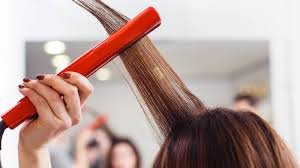What is Dry Hair Care?
Dry Hair Care refers to the practices, treatments, and lifestyle choices aimed at improving the texture, strength, and moisture balance of hair that lacks natural hydration. Dry hair can feel brittle, rough, or frizzy and may break easily. Proper care helps replenish lost moisture, protect strands, and restore shine.
Dry hair is often caused by:
- Overwashing or using harsh shampoos
- Heat styling tools (straighteners, curlers, blow dryers)
- Lack of scalp oils or sebum production
- Environmental factors (sun, wind, pollution)
- Poor diet or dehydration
Why is Dry Hair Care Important?
Caring for dry hair goes beyond appearance—it’s essential for hair health. Without proper care, dry hair can lead to:
- Split Ends & Breakage: Weak strands are more prone to damage.
- Scalp Issues: Dryness may lead to itching, flaking, or dandruff.
- Dull Appearance: Lack of natural oils reduces shine and volume.
- Slower Growth: Fragile hair often struggles to retain length.
Healthy hair not only boosts confidence but also reflects overall well-being.
Effective Dry Hair Care Tips
Here are expert-recommended steps for Dry Hair Care:
1. Use a Moisturizing Shampoo & Conditioner
Choose sulfate-free products with nourishing ingredients like:
- Argan oil
- Shea butter
- Coconut oil
- Keratin
2. Limit Heat Styling
Excessive use of straighteners or dryers strips natural moisture. Use heat protectant sprays and opt for air-drying when possible.
3. Apply Hair Oils & Masks
Deep conditioning once or twice a week helps restore shine. Oils such as jojoba, almond, and olive oil lock in hydration.
4. Stay Hydrated & Eat a Balanced Diet
Nutrients like omega-3 fatty acids, vitamin E, and protein strengthen hair from the inside out.
5. Protect Hair from Environmental Damage
Wear a hat or scarf in the sun, and rinse hair after swimming in chlorinated or salty water.
Common Mistakes to Avoid with Dry Hair Care
When trying to improve hair health, many unknowingly worsen the problem. Avoid these mistakes:
- Overwashing: Frequent shampooing strips natural oils.
- Skipping Conditioner: Always follow up shampoo with conditioner.
- Using Hot Water: Wash hair with lukewarm or cool water to prevent dryness.
- Brushing Wet Hair Roughly: Wet strands are more fragile; use a wide-tooth comb.
- Ignoring Scalp Health: A healthy scalp is key to nourished hair.
Dry Hair Care Routine (Quick Checklist)
- Wash hair 2–3 times per week with mild shampoo
- Apply conditioner after every wash
- Use a nourishing mask weekly
- Avoid excessive heat and chemical treatments
- Maintain a nutrient-rich diet
- Keep scalp clean and hydrated
Conclusion
Dry Hair Care is about more than external treatments—it requires a combination of healthy habits, the right products, and protective measures. By following a proper routine, you can restore softness, shine, and manageability to your hair. Those experiencing more advanced hair concerns can also explore restorative solutions and even start your transplant journey with Hairy.co.uk to achieve long-term results at trusted clinics like Wimpole.
👉 For more expert lifestyle and wellness guides, visit skyhape.com.
FAQs on Dry Hair Care
- How often should I wash dry hair?
2–3 times a week is ideal to prevent stripping natural oils. - What natural remedies help dry hair?
Coconut oil, aloe vera gel, and honey masks are excellent natural moisturizers. - Can dry hair cause hair loss?
Yes, prolonged dryness can weaken roots, leading to breakage and hair fall. - Which foods improve dry hair health?
Foods rich in omega-3 (salmon, flaxseeds), vitamin E (almonds, spinach), and protein (eggs, lean meats) help nourish hair. - Is it okay to oil my hair daily?
Light oiling is fine, but avoid heavy daily applications that may clog the scalp. - Can weather make my hair dry?
Yes, extreme sun, wind, and cold weather can strip moisture from hair. - Should I cut my hair if it’s too dry?
Trimming split ends regularly helps maintain healthier hair growth.
For more expert lifestyle and wellness guides, visit: spacecoastdaily.co.uk


